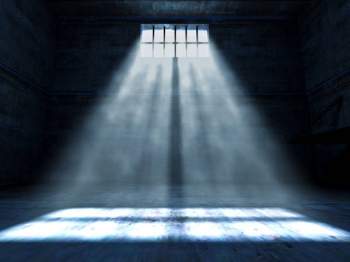
Understanding the Purpose of Punishment

Various aspects of criminal punishment are often at the center of intense debate. The fairness and the righteousness of criminal punishment is often called into question. Many individuals disagree about the purposes of criminal sentencing. While some people believe that convicted criminals should be handed a criminal sentence in order to be punished for their actions, others believe that criminal punishment should only be utilized to keep society safe.
There are many different reasons that have been cited for imposing punishment upon a convict. People often exhibit concern about the possibility of prejudice and discrimination within the criminal justice system. Individuals who question criminal punishment specify numerous different judicial practices that do not guard against discrimination, and in fact, may breed discrimination within criminal cases. As the existence of discrimination within legal proceedings is unconstitutional, these problems must be addressed.
Conflicting Purposes
There are many different reasons that criminals are sentenced to carry out designated punishments. Each of these reasons varies a great deal in purpose and the goal of the punishment. While some purposes of punishment are aimed at benefiting society, others are just aimed at exacting revenge upon an individual who is responsible for harm and destruction. Some criminal punishments are imposed with good intentions and hope for the convict’s future. Other penalties are exacted with cruel or malignant intentions.
In many instances, the purpose of criminal punishments conflict with each other. This conflict and instability is often at the core of the debate surrounding disproportional punishment and it also allows room for Equal Protection rights to be violated. Different goals require different types of punishments and different levels of severity. This causes a great deal of controversy and argument about the inconstant nature of criminal sentencing and punishments.
Punishment and Equal Protection
Many people in the United States like to believe that all individuals are treated equally and fairly under the law. The Constitution of the United States outlaws the discrimination of any individual by a law officer or judicial official for any reason. However, the arbitrary nature of the judicial system is often the subject of intense debate.
Criminal punishments often seem to vary a great deal from one convicted criminal to another, even if the crimes that both individuals committed were the same. This raises the question of how judges decide upon acceptable punishments for individuals who have violated the law.
While one individual may be sentenced to a very light punishment, another offender may receive a very severe punishment. Because there are no set punishments for taking part in certain criminal activities, judges have the ability to decide on a punishment for a convicted criminal. Many individuals feel that this leaves too much room for the potential of discrimination.
Compensation
Criminals cost the Government and taxpayers a great deal of time, money, and resources. Financial funds must be provided in order to supply manpower and essential equipment for the apprehension, incarceration, and punishment of individuals who are responsible for violating the law. Court fees and the maintenance of correctional facilities place a great financial burden on states and individuals within the community. Therefore, it is only fair that criminals be required to help pay back the debt that they have caused.
Punishments and penalties have been developed that focus on compensation. During his or her sentence, the criminal may be required to repay his or her debt to society through physical labor and restitution. The tasks that a convicted criminal will be required to take part in may vary a great deal from case to case and from one offender to another. Compensation is only one of the common and important purposes of criminal punishment.
Judicial Discretion
Background
The Constitution of the United States bestows a great deal of power and responsibility upon a criminal judge. Every case and every defendant is different than the previous case. Each defendant is unique in his or her life history, experiences, beliefs, and morals. A traumatic event that an individual experienced in his or her past may make him or her more likely to take part in certain criminal activities.
The crime may be a one time, isolated event which the defendant may express a great deal of remorse about having committed. This is very different from a repeat offender who lacks the moral scruples to effectively live in a community in which he or she can become a productive and successful member of society.
Therefore, many people believe that it is illogical to subject every criminal to the same punishment, even if the crimes that were committed were the same. A criminal judge has the ability to exercise discretion over criminal cases to determine what punishment is warranted.
Disproportional Punishments
The United States Constitution gives judges the ability to use their experience, knowledge, and reason to determine the proper course of actions in criminal cases. However, the Constitution also forbids judges from sentencing individuals to penalties that would be considered cruel and unusual punishment.
It is easy for a judge to abuse the authority and the power that he or she is given. Judges must preside over cases in which the defendant has committed extremely atrocious crimes, such as assault or sexual battery. The judge may feel that the defendant deserves to spend the rest of his or her life in prison for the crimes that he or she has committed.
However, the judge must be able to disregard his or her personal opinion of a convict when he or she is exercising judicial discretion. Any sentence must be made under the law and must follow legal precedence. New legislation and guidelines limit the amount of discretion that a judge may employ.
NEXT: What to Do About Stolen Property





















